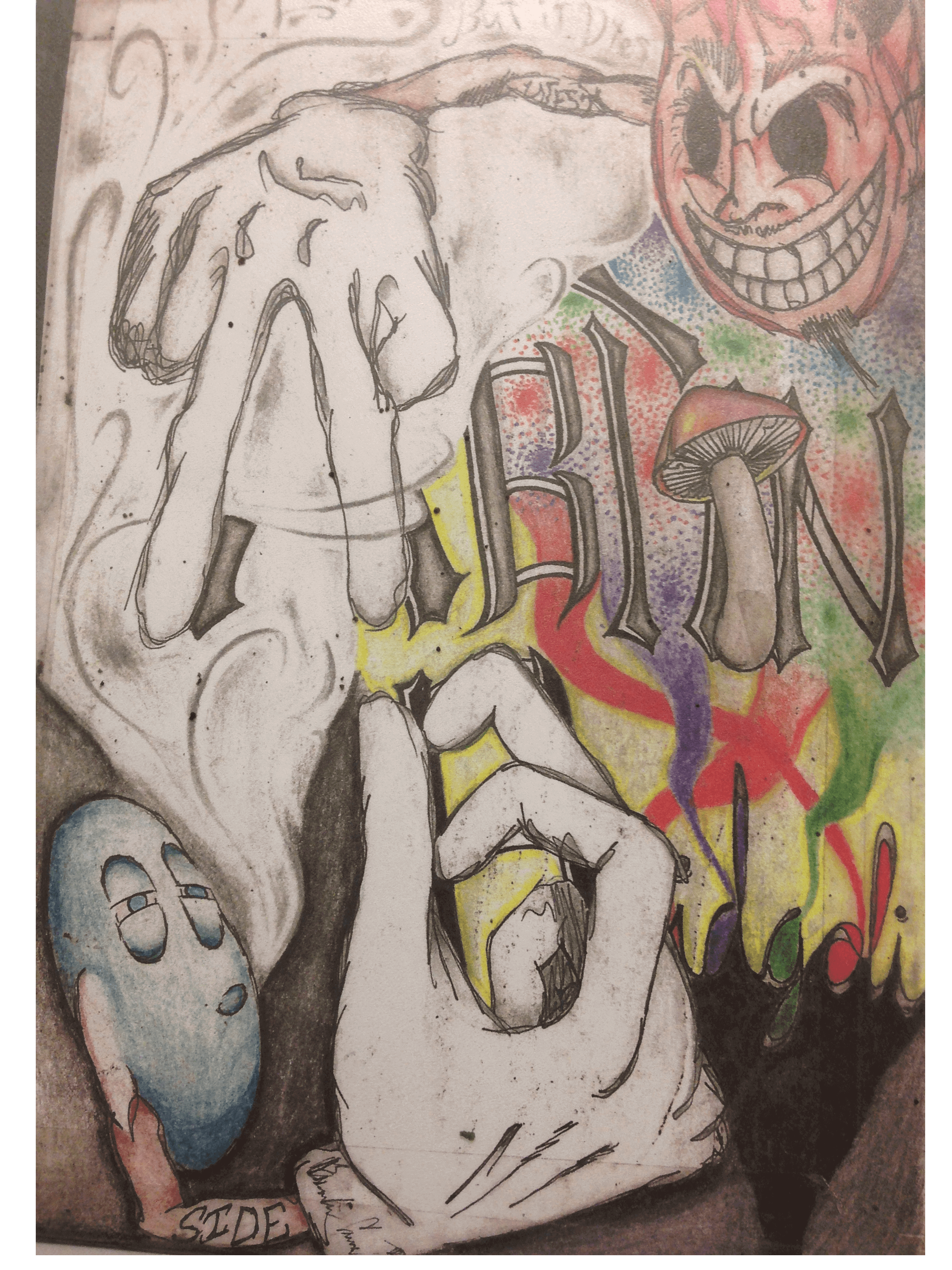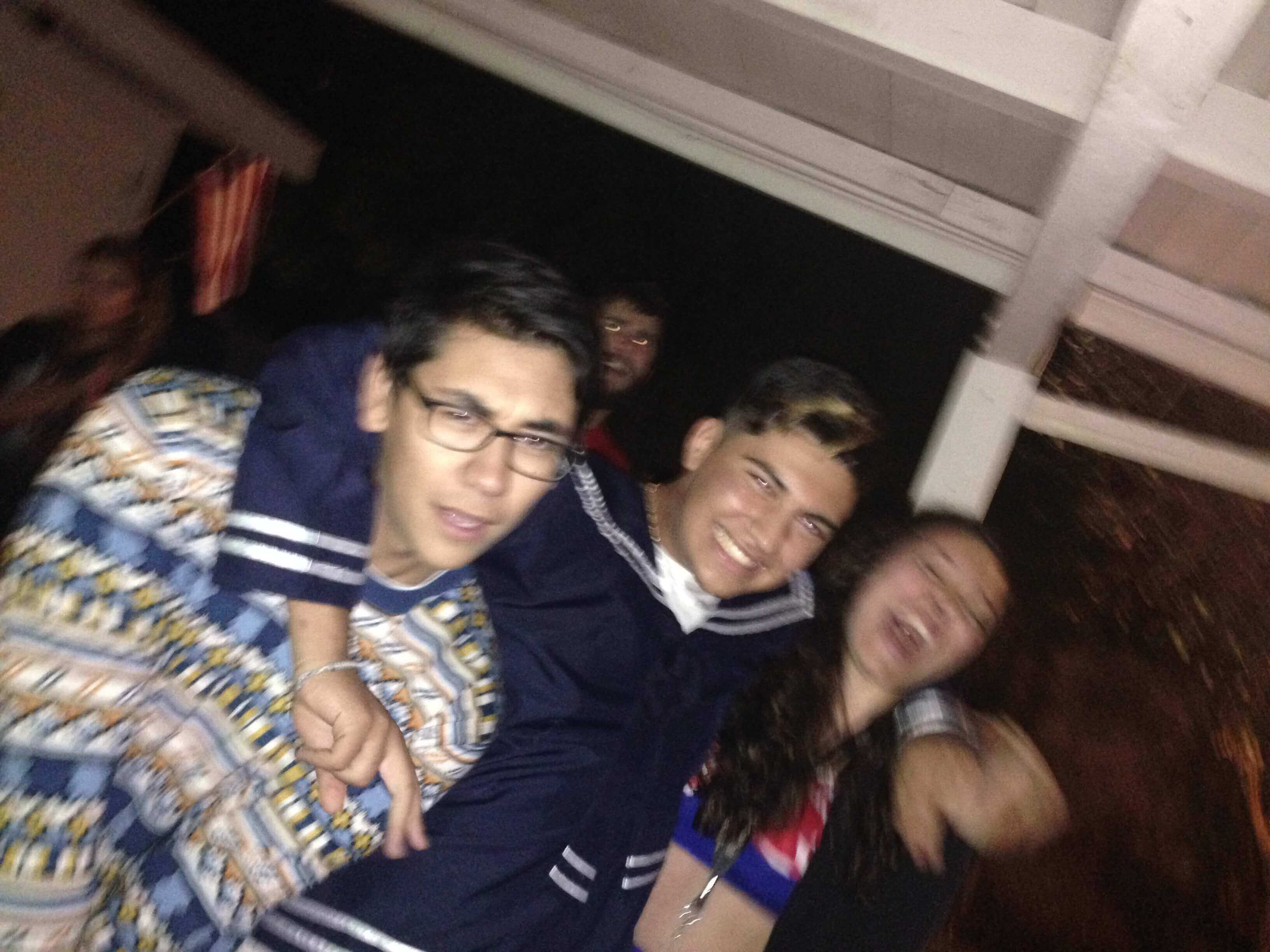
Gonzo Journalism: Decadent & Depraved
When I think back on first reading Thompson's Fear & Loathing in Las Vegas: A Savage Journey to the Heart of the American Dream, it's the fevered moments of paranoia & debauchery tripping off the page like some kind of drug-induced sweat that I remember best. What I don't remember is the winner of the Mint 400 Desert Race that was held in Las Vegas during March of 1971, but that was the original 250 word photo caption assignment that Thompson was hired to covered by Sports Illustrated during his time in Las Vegas.
“Hunter was a man’s man and had been from his childhood. He was large, strong, and dominant. He smoked cigarettes and drank, drove fast, and attracted beautiful women. He rode motorcycles and took risks. He knew how to fight and how to intimidate people verbally to avoid a fight.” ~ Curated Excerpt From: Juan F. Thompson. “Stories I Tell Myself.” Apple Books.
Having said that, Thompson instead delivered a vicious commentary on the American Dream with himself right smack dab in the middle. The unique blend of autobiographical incidents with pure fiction as a form of journalism is called Gonzo Journalism. While in the Air Force, Thompson taught himself the basic principles of journalism: truth, accuracy, impartiality, accountability & the ever-important who, what, when, where & why.
“Hunter was born and raised in Louisville, Kentucky. His family had been in Kentucky for generations, and there are names like Semeranis Lawless and America Hook in our Thompson family tree. He sometimes called himself nothing but a smart hillbilly. He was born in 1937 and had two brothers, Davison and Jim, both younger. His father was an insurance salesman, and his mother was a stay-at-home mom until his father died suddenly when he was a teenager and she had to go to work. He attended public school, read constantly, spent time with the children of Louisville’s Old Money families, and scraped through high school not due to lack of intelligence but because of boredom and hostility to authority. He also got into a fair amount of trouble, so that at age seventeen he spent thirty days in the county jail for a bogus petty robbery charge. It would have been sixty days except the judge gave him the option of joining the Air Force in return for the reduced sentence." ~ Curated Excerpt From: Juan F. Thompson. “Stories I Tell Myself.” Apple Books.
“He enlisted and was initially trained to be a radio technician. He despised everything about the military and probably would have spent four years in solitary confinement for chronic and unrepentant insubordination if he hadn’t managed to lie his way into a job as the sports editor for the base newspaper, The Command Courier. This made all the difference. He worked his own hours (slept late, worked late), came and went as he pleased, did unauthorized freelance writing for a local civilian paper, and wrote entertaining, flattering, and wildly exaggerated articles about the base sports teams. This curried favor with the base commander, who in turn excused Hunter from the customary airman duties and shielded him from the constant complaints of other officers. In this way he survived three years of the Air Force, got an early honorable discharge, and gained some solid experience as a journalist. He also understood that he wanted to be a writer, and a damn good one. Not a journalist, but a novelist, like Hemingway or Fitzgerald.” ~ Curated Excerpt From: Juan F. Thompson. “Stories I Tell Myself.” Apple Books.
“I’d put things in the local paper that I couldn’t put in the base paper. Really inflammatory shit. The Air Force got very angry about it. I was constantly doing things that violated regulations. An apparently uncontrollable iconoclast, I was discharged today after one of the most hectic and unusual Air Force careers in recent history.” ~ HST
To quote Col. Evans concerning the discharge, “In summary, this airman, although talented, will not be guided by policy.”
After the Air Force, Thompson took freelance opportunities from various journals & newspapers, but by the age of 21, he had already grown contempt with journalism as a profession. In a job seeking cover letter to the Vancouver Sun, Thompson wrote for & shockingly was not hired.
“After his discharge, he held a couple of brief jobs on newspapers on the East Coast, including a stint as a copy boy at Time magazine. He was either fired from or quit each of these jobs, and soon realized he would never be able to work in an office for a boss, that he wasn’t wired for it. It became clear to him that working as a salaried journalist was not going to allow him to be the kind of writer that he wanted to be. So, he became a freelance journalist, at starvation wages, but with the freedom to work on his own terms. ” ~ Curated Excerpt From: Juan F. Thompson. “Stories I Tell Myself.” Apple Books.
"As far as I'm concerned, it's a damned shame that a field as potentially dynamic & vital as journalism should be overrun with dullards, bums, & hacks, hag-ridden with myopia, apathy, & complacence, & generally stuck in a bog of stagnant mediocrity. If this is what you're trying to get the sun away from, then I think I'd like to work for you." ~ HST
Thompson first garnered acclaim for his article, the Motorcycle Gangs Losers & Outsiders for the magazine the Nation, which was later expanded into the novel Hells Angels: the Strange & Terrible Saga of the Outlaw Motorcycle Gangs. The book detailed Thompson's experiences living with the Hells Angels, a notorious motorcycle club based in California. He spent a year embedded with one specific chapter, learning their unique subculture & lifestyle. The novel was praised for its up-close & uncompromising look into a unique world that was feared by the general public.
“Hunter was curious to know the real story, and proposed that he write a magazine article on the Hells Angels. He ended up spending around six months with the Oakland chapter, not as a member but as a journalist who wanted to know their story. Though he ended up getting stomped by the gang for allegedly betraying the terms of the financial deal he had with them, he had gotten the material he needed. In his book he portrays them as neither devils nor revolutionaries but as mostly small-time hoodlums and drifters with very limited options, unallied to any ideology or greater movement. Though the book was nonfiction, it wasn’t purely objective. It was a story about Hunter and the Hells Angels and how he met them, dealt with them, rode with them, and learned about them, from his point of view.” ~ Curated Excerpt From: Juan F. Thompson. “Stories I Tell Myself.” Apple Books.
"The Edge... There is no honest way to explain it because the only people who really know where it is are the ones who have gone over. The others ~ the living ~ are those who pushed their control as far as they felt they could handle it, & then pulled back, or slowed down, or did whatever they had to when it came time to choose between Now & Later. But the edge is still Out there." ~ HST

“Not that he was lazy. He worked hard on his first novel, Prince Jellyfish (never published), cranked out freelance articles, and wrote a vast number of letters to friends around the country. He looked at letter writing as not only a way to keep in touch and debate ideas, but as a writing exercise, so that when he wasn’t sleeping or in the bar with friends, he was writing. He moved constantly, went through a long string of old and worn-out cars, slept during the day and worked at night, borrowed money (and lent it when he had it), stayed one step ahead of the bill collectors, and left a trail of small-time debt across the country. He also kept carbon copies of everything he wrote in neatly organized and carefully labeled folders.” ~ Curated Excerpt From: Juan F. Thompson. “Stories I Tell Myself.” Apple Books.
“In New York City he met my mother, and then spent several months traveling around South America as a freelancer for The Nation and The National Observer, a weekly paper published by Dow Jones. He and my mother lived in Puerto Rico for a while (which provided the raw material for his first and only published novel, The Rum Diary), got married and headed west to California, lived in Big Sur for a bit, headed to a happening place in the Colorado Rockies called Aspen that some friends had just discovered, spent a year or so there, then returned to the San Francisco Bay Area in 1963. ” ~ Curated Excerpt From: Juan F. Thompson. “Stories I Tell Myself.” Apple Books.
Having now made a name for himself, Thompson took a writing assignment with the rebellious & short-lived magazine Scanlan's Monthly, to go back to his hometown of Louisville & report on the famous Kentucky Derby race. The final result inadvertently defined a whole new kind of journalism, Gonzo Journalism & solidified Thompson's writing style moving forward.
So What Exactly is Gonzo Journalism
“I went to the base library and found three books on journalism. I stayed there reading them until it closed. Basic journalism. I learned about headlines, leads: who, when, what, where, that sort of thing. I barely slept that night. This was my ticket to ride, my ticket to get out of that damn place.” ~ HST
Basically it's subjective journalism where the writer becomes a part of the story via a first-person narrative. Rather than focusing on the subject of the piece, the writer instead becomes the star of the story as they share their experiences & beliefs through use of sarcasm, humor & exaggeration. Traditional journalism is all about delivering objective facts through neutral language ~ who what when where why ~ raw dry facts that can be verified by third parties ~ tell, don't show.
In contrast, Gonzo Journalism is ~ show, don't tell. It's more about getting the feel of the events or places the writer is covering & from the author's perspective & opinions blossoms social critique in satire. The fact that the author was reporting on a story becomes the story itself. The final product gives the appearance of stream-of-consciousness reporting, but it's not. It's still journalism with standards of accuracy & grammar, disconnected thoughts are judiciously trimmed in ordered to create a precisely tailored story.
“In 1970, Hunter covered the Kentucky Derby for a short-lived magazine called Scanlan’s and wrote what turned out to be his first piece of Gonzo Journalism, a word coined by a fellow writer to describe Hunter’s unique combination of first-person subjectivity, factual reporting, and hyperbole written in raw, powerful prose. The word Gonzo eventually became synonymous with both Hunter’s writing and his lifestyle.” ~ Curated Excerpt From: Juan F. Thompson. “Stories I Tell Myself.” Apple Books.
When Thompson arrived back in his hometown of Kentucky to report on the Derby, he wasn't alone. He was joined by Ralph Steadman, an artist from Welsh whose bizarre style of capturing the essence of people & places would become just as vital to the DNA of Gonzo Journalism as Hunter Thompson. Having said that, their long relationship began at the Kentucky Derby. After a long weekend of heavy drinking & disconnected thoughts & observations scribbled into his notebook, Thompson returned to New York to write the story.
More specifically, Thompson stated that Gonzo Journalism is a style of reporting that bases itself on William Faulkner’s idea “that the best fiction is far more true than any kind of journalism and the best journalists have always know this.”
Immediately he was plagued with fears that he didn't have any kind of coherent story & a looming deadline. In an act of pure desperation, Thompson took the few draft pages he had written, inserted scribbled pages from his notebook & sent them to the magazine along with Ralph Steadman sketches. Thompson was so embarrassed by his own irresponsibility that he wrote an apology letter to the editor:
"It's a shitty article, a classic of irresponsible journalism." ~ HST
He was certain he'd never worked for another major publication again, but when the article was published it changed the landscape of journalism forever. The Kentucky Derby is Decadent & Depraved, depicts events in Louisville & the days before & after the Derby all through the eyes of Hunter Thompson. Written under duress & sketched with eyebrow pencil & lipstick by Ralph Steadman, he provided up-close views of activities in the Derby infield & grandstand at Churchill Downs all the while commenting on the drunken debauchery & lewdness of the surrounding spectators.
“Thousands of raving, stumbling drunks, getting angrier & angrier as they lose more & more money, by mid-afternoon they’ll be guzzling mint juleps with both hands & vomiting on each other between races.” ~ HST

In the story Thompson serves as a Virgil like guide leading Ralph Steadman deeper & deeper into the hell, that is the Kentucky Derby. The focus of the article wasn't the dry facts of who won the race, in fact out of a 7,000 word story only one sentence mentions the winner of the race. Instead their focus was on the crowd.
"& unlike most of the others in the press box, we didn't give a hoot in hell what was happening on the track. We had come there to watch the real beasts perform." ~ HST
By the end of the piece, once Thompson & Steadman have fully immersed themselves in the raucous atmosphere of alcoholism & violence, they painfully realized that they have become the very savages they originally planned to satirize.
"It was a face I'd seen a thousand times at every Derby I'd ever been to. I saw it, in my head, as the mask of the whiskey gentry ~ a pretentious mix of booze, failed dreams & a terminal identity crisis; the inevitable result of too much inbreeding in a closed & ignorant culture." ~ HST

"There he was, by God ~ a puffy, drink-ravaged, disease-ridden caricature... like an awful cartoon version of an old snapshot in some once-proud mother's family photo album. It was the face we'd been looking for ~ & it was, of course, my own. Horrible, horrible..." ~ HST
That's an important aspect of Gonzo Journalism that is often overlooked by imitators. Underneath the alcohol, drugs & vulgarity, Thompson was always communicating a deeper message to the audience. A social critique, a political agenda, a commentary on our culture & that's exactly what he did with his Kentucky Derby article. We're able to experience Thompson's schizophrenic view of America at a time of great turmoil. Thompson makes a point to reference President Nixon, the Vietnam War, the Kent State shootings, the Black Panthers & the failing economy. Albeit they aren't the main focus of the article, their brief mentions color in the backdrop of a country becoming unglued & give a sobering perspective to a simple horse race happening in the middle of Louisville, Kentucky.
The term gonzo still permeates our culture today & it's all thanks to the brilliantly bizarre mind of Hunter S. Thompson. Hopefully I'll behave & think of good deeds, thoughts & endeavors. I indulge in discovering the works of Hunter S. Thompson. My perceived value from Hunter is to take control of your own life, don't be at the beckoning call of any institution or other excuses. Freedom is about personal freedom, you have the right to live & die. Having said that, I never thought about being born into this world, so I guess I'll stop thinking about the day I will die. A viable alternative I live vicariously through, to suppress my bad habits & transpose them into better ones. There's a moment when you ask what's next, & ask with full totality, therefore reach a fullness & just go. Having said that, lying is done with words, but also done with silence.
“I learned that some cops lie. This was a brutal and profoundly disturbing realization: Those in control are not necessarily trustworthy. More importantly, authority is not necessarily to be obeyed, and certainly not feared. There is always a way to challenge authority, either in the courtroom or in the media or in the voting booth. He has done all of them many times, and usually successfully. In other words, he believes that it is possible to change a situation for the better, even in the face of entrenched authority.” ~ Curated Excerpt From: Juan F. Thompson. “Stories I Tell Myself.” Apple Books.
“I Liked Jimmy Carter the first time I met him, and in the two years that have passed since that Derby Day in Georgia I have come to know him a hell of a lot better than I knew George McGovern at this point in the '72 campaign, and I still like Jimmy Carter. He is one of the most intelligent politicians I've ever met, and also one of the strangest. I have never felt comfortable around people who talk about their feeling for Jesus, or any other deity for that matter, because they are usually none too bright. . . Or maybe "stupid" is a better way of saying it; but I have never seen much point in getting heavy with either stupid people or Jesus freaks, just as long as they don't bother me. In a world as weird and cruel as this one we have made for ourselves, I figure anybody who can find peace and personal happiness without ripping off somebody else deserves to be left alone. They will not inherit the earth, but then neither will I. . . And I have learned to live, as it were, with the idea that I will never find peace and happiness, either. But as long as I know there's a pretty good chance I can get my hands on either one of them every once in a while, I do the best I can between high spots.” ~ Curated Excerpt From: Hunter S. Thompson. “The Great Shark Hunt.” Apple Books.
Curated via Entertain the Elk. Thanks for reading, cheers! (with a glass of wine & book of course)

2015 Rocca Di Castagnoli Buriano Cabernet Sauvignon
Producer: Rocca Di Castagnoli, Tuscany, Toscana IGT, Italy
"The 2015 Cabernet Sauvignon Buriano is another incredibly distinctive wine. Inky and dark, with striking complexity, Buriano offers a super intriguing mix of varietal character and Chianti Classico structure. That combination works so well here. The 2015 spent 18 months in French oak. It is powerful, exceptionally beautiful and totally unique." ~ 95 Points ~ Antonio Galloni ~ Vinous

The Great Shark Hunt: Strange Tales from a Strange Time
'Well ...yes, and here we go again' ~ Dr Hunter S. Thompson. Indeed we do. Here, in one chunky volume, is the best of gonzo, from Private Thompson in trouble with the air force, to the devastating portrait of the ageing Muhammad Ali, taking in the Kentucky Derby, Freak Power in the Rockies, Nixon in '68, McGovern in '72, Fear and Loathing at the Watergate, Jimmy Carter and the Great Leap of Faith ~ and much more. This is an indispensable compendium of decadence, depravity and horse-sense.
'Hunter Thompson elicits the same kind of admiration one would feel for a streaker at Queen Victoria's funeral.' ~ William F. Buckley
'No other reporter reveals how much we have to fear and loathe, yet does it so hilariously. Now that the dust of the sixties has settled, his hallucinated vision strikes one as having been the sanest.' ~ Nelson Algren

